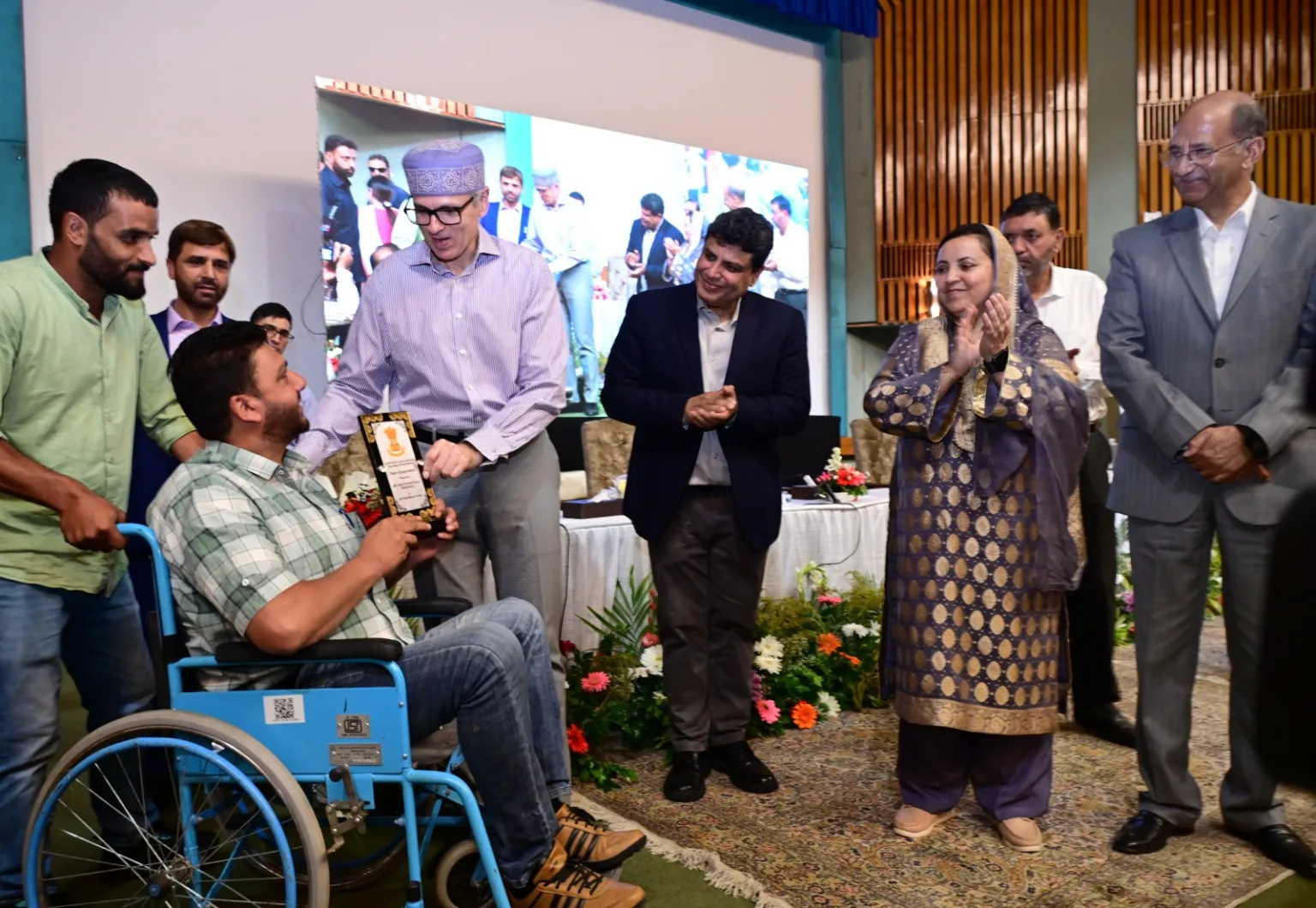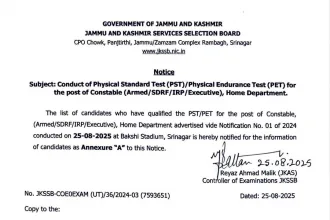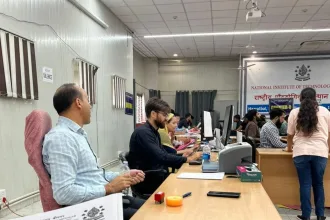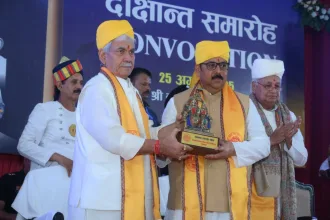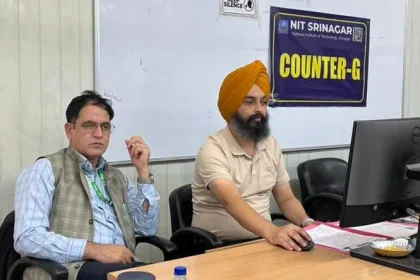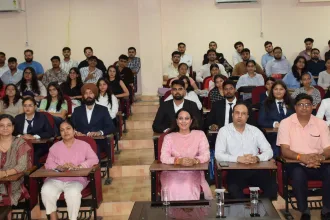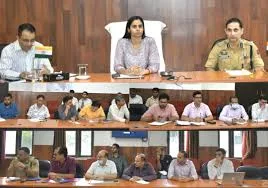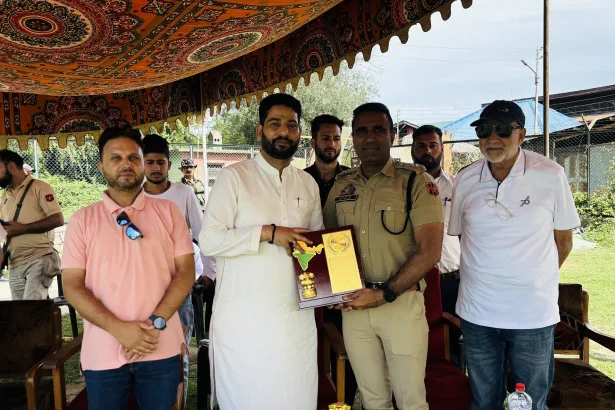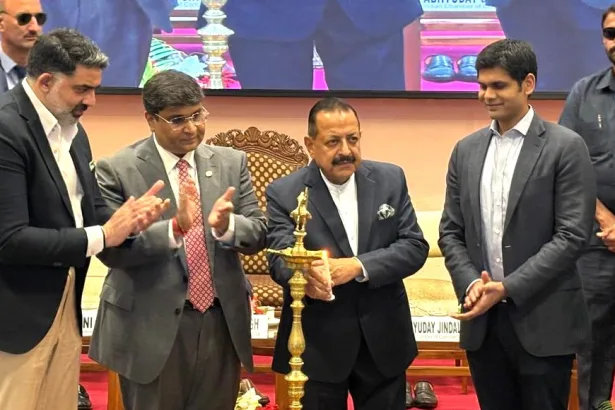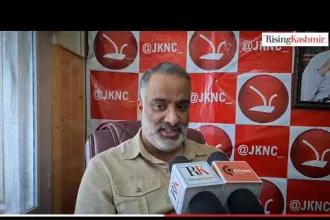- Quick Links
- About Us
- Contact Us
- E-Paper
Search
Archives
- August 2025
- July 2025
- June 2025
- May 2025
- April 2025
- March 2025
- February 2025
- January 2025
- December 2024
- November 2024
- October 2024
- September 2024
- August 2024
- July 2024
- June 2024
- May 2024
- April 2024
- March 2024
- February 2024
- January 2024
- December 2023
- November 2023
- October 2023
- September 2023
- August 2023
- July 2023
- June 2023
- May 2023
- April 2023
- March 2023
- February 2023
- January 2023
- December 2022
- November 2022
- October 2022
- September 2022
- August 2022
- July 2022
- June 2022
- May 2022
© 2022 Foxiz News Network. Ruby Design Company. All Rights Reserved.
Notification Show More
CM Omar Abdullah reaffirms social welfare as Government’s primary responsibility
Chief Minister Omar Abdullah reiterated the government’s firm commitment to welfare of all segments of society as Government’s main responsibility rather than an act of charity. Addressing a one-day event…
Running govt from jail an insult to democracy: Amit Shah
Flays Oppn for disrupting Parliament over Bill Says 130th Constitutional Amendment aims to uphold moral integrity in public office
No shortage of schemes, only awareness needed: Minister Itoo
‘Omar govt brought historic reforms but remote areas’ outreach remains challenge’
Div Com Garg reviews arrangements for visit of Parl committee on Home
Srinagar, Aug 25: Divisional Commissioner (Div Com) Kashmir, Anshul Garg on Monday…
Residents demand ENT, dermatologist for Kangan Sub-District Hospital
Kangan, Aug 25: Residents of Kangan in central Kashmir’s Ganderbal district have…
Ladakh: Pensi-la, Khardung La receive season’s first snowfall
Schools shut in Leh
DC Rajouri reviews Phase-II Data of 11th agri census
Rajouri, Aug 25: Deputy Commissioner Rajouri Abhishek Sharma on Monday chaired a…
J&K Bank organises financial inclusion and Re-KYC awareness camp in Samba, Jmu
Srinagar, Aug 25: Continuing its mission to promote financial inclusion across Jammu…
Induction prog for MBA, BBA freshers held at SMVDU
Jammu, Aug 25: The School of Business, Shri Mata Vaishno Devi University…
NCORD meeting : DC pitches for synchronised Intel Sharing to crack down on perpetrators of drug abuse
Reasi, Aug 25: A meeting of the District-Level Narco Coordination Committee (NCORD)…
Amid death & despair, 108 ambulances carried hope through Kishtwar
When a deadly cloudburst swept through Chisoti village in Kishtwar district on August 14, triggering chaos and tragedy during the Machail Mata Yatra, it was the swift response of 108…
Innovation & Self Reliance
Indian Institutes of Technology (IITs) represent the best that India has offered in terms of technological innovations and bringing the…
Sports
Centenary celebrations of Indian Chamber of Commerce : ICC’s immediate visit to Kashmir after Pahalgam tragedy sent strong message: Dr Jitendra
Says several reforms introduced in business & trade under Modi govt
Weather
15°C
Srinagar
overcast clouds
15° _ 15°
89%
1 km/h
Tue
23 °C
Wed
27 °C
Thu
28 °C
Fri
28 °C
Sat
27 °C



